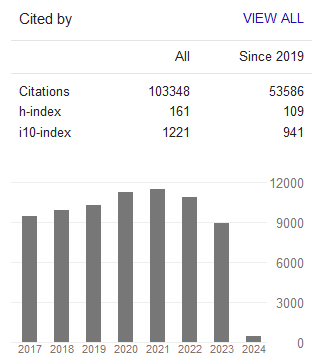Coping Strategies among Pastoralists Women Entrepreneurs against the Odds: Experiences from Baringo Division, Samburu North, Kenya
- Grace Adhiambo Okello
- Orucho Michael Ngala
Abstract
Women in Baragoi Division in Samburu North have had to contend with internal wars involving cattle raids were many of them are caught in between the wars. Added to these is the harsh economic environment where economic activities and businesses are disrupted by frequent raids. Furthermore the situation is compounded by unfavorable climate where very little food for sustenance can grow. Despite these adverse conditions, the women in Baragoi division endure and survive as they take care of their families while gainfully engaged in micro and small enterprises. Given that more established entrepreneurs and the Kenyan government has made insignificant effort to empower pastoralist women and youth, what then drives pastoralists’ women entrepreneurs? This study therefore sought to establish the survival or coping strategies which keep these women entrepreneurs going on with their businesses in such life threatening environment and possible support mechanisms. The main objective of the study was to establish the coping strategic options among women entrepreneurs in Baragoi Division in Samburu North Kenya. Cross sectional survey was adopted as the study design. The population constituted 14419 women across 15 sub-locations within Baragoi division. Proportional sampling technique was used to sample 389 respondents. Descriptive statistics and cross tabulation were used to analyze data. The study established that women entrepreneurs face a number of challenges, the main one (37.5%) being insecurity. The main coping strategy to counter the insecurity challenge was established as group movement at 20%. It was concluded that for women pastoralist entrepreneurs to survive, the stakeholders need to combine efforts and ensure safe environment and general support especially towards women entrepreneurs who are significant contributors to the economy and main players in family support.- Full Text:
 PDF
PDF
- DOI:10.5539/ijbm.v12n10p166
Journal Metrics
Google-based Impact Factor (2023): 0.86
h-index(2023): 152
i10-index(2023): 1168

Index
- Academic Journals Database
- AIDEA list (Italian Academy of Business Administration)
- ANVUR (Italian National Agency for the Evaluation of Universities and Research Institutes)
- Berkeley Library
- CNKI Scholar
- COPAC
- EBSCOhost
- Electronic Journals Library
- Elektronische Zeitschriftenbibliothek (EZB)
- EuroPub Database
- Excellence in Research for Australia (ERA)
- Genamics JournalSeek
- GETIT@YALE (Yale University Library)
- IBZ Online
- JournalTOCs
- Library and Archives Canada
- LOCKSS
- MIAR
- National Library of Australia
- Norwegian Centre for Research Data (NSD)
- PKP Open Archives Harvester
- Publons
- Qualis/CAPES
- RePEc
- ROAD
- Scilit
- SHERPA/RoMEO
- Standard Periodical Directory
- Universe Digital Library
- UoS Library
- WorldCat
- ZBW-German National Library of Economics
Contact
- Stephen LeeEditorial Assistant
- ijbm@ccsenet.org
